
Dante Alighieri, most likely baptized Durante di Alighiero degli Alighieri and widely known and often referred to in English mononymously as Dante was an Italian poet, writer, and philosopher. His Divine Comedy, originally called Comedìa and later christened Divina by Giovanni Boccaccio, is widely considered one of the most important poems of the Middle Ages and the greatest literary work in the Italian language.

La Vita Nuova or Vita Nova is a text by Dante Alighieri published in 1294. It is an expression of the medieval genre of courtly love in a prosimetrum style, a combination of both prose and verse.

Giuseppe Ungaretti was an Italian modernist poet, journalist, essayist, critic, academic, and recipient of the inaugural 1970 Neustadt International Prize for Literature. A leading representative of the experimental trend known as Ermetismo ("Hermeticism"), he was one of the most prominent contributors to 20th century Italian literature. Influenced by symbolism, he was briefly aligned with futurism. Like many futurists, he took an irredentist position during World War I. Ungaretti debuted as a poet while fighting in the trenches, publishing one of his best-known pieces, L'allegria.

Eugenio Montale was an Italian poet, prose writer, editor and translator, recipient of the 1975 Nobel Prize in Literature and one of the finest literary figures of the 20th century.
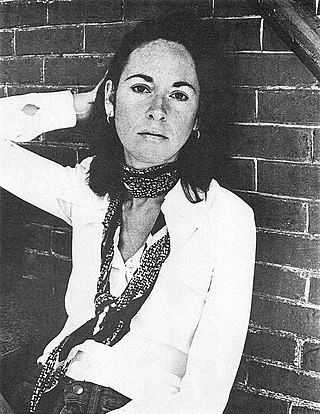
Louise Elisabeth Glück was an American poet and essayist. She won the 2020 Nobel Prize in Literature, whose judges praised "her unmistakable poetic voice that with austere beauty makes individual existence universal". Her other awards include the Pulitzer Prize, National Humanities Medal, National Book Award, National Book Critics Circle Award, and Bollingen Prize. From 2003 to 2004, she was Poet Laureate of the United States.

Beatrice "Bice" di Folco Portinari was an Italian woman who has been commonly identified as the principal inspiration for Dante Alighieri's Vita Nuova, and is also identified with the Beatrice who acts as his guide in the last book of his narrative poem the Divine Comedy, Paradiso, and during the conclusion of the preceding Purgatorio. In the Comedy, Beatrice symbolises divine grace and theology.
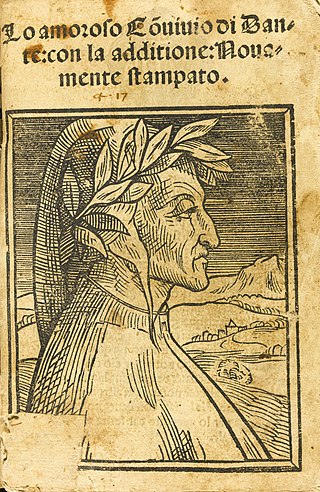
Convivio is an unfinished work written by Dante Alighieri roughly between 1304 and 1307. It consists of four books, or, "tratatti": a prefatory one, plus three books that each include a canzone and a prose allegorical interpretation or commentary of the poem that goes off in multiple thematic directions.
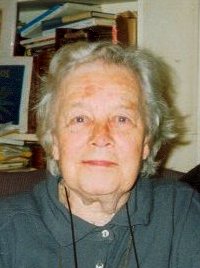
Kathleen Jessie Raine was a British poet, critic and scholar, writing in particular on William Blake, W. B. Yeats and Thomas Taylor. Known for her interest in various forms of spirituality, most prominently Platonism and Neoplatonism, she was a founding member of the Temenos Academy.
Haroldo Eurico Browne de Campos was a Brazilian poet, critic, professor and translator. He is widely regarded as one of the most important figures in Brazilian literature since 1950.

Helen Vendler was an American academic, writer and literary critic. She was a professor of English language and history at Boston University, Cornell, Harvard, and other universities. Her academic focus was critical analysis of poetry and she studied poets from Shakespeare and George Herbert to modern poets such as Wallace Stevens and Seamus Heaney. Her technique was close reading, which she described as "reading from the point of view of a writer".
Nationality words link to articles with information on the nation's poetry or literature.
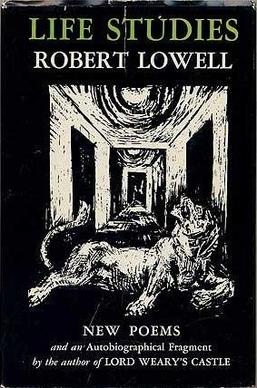
Life Studies is the fourth book of poems by Robert Lowell. Most critics consider it one of Lowell's most important books, and the Academy of American Poets named it one of their Groundbreaking Books. Helen Vendler called Life Studies Lowell's "most original book." It won the National Book Award for Poetry in 1960.
Geoffrey Brock is an American poet and translator. Since 2006 he has taught creative writing and literary translation at the University of Arkansas, where he is Distinguished Professor of English.
Brian Keeble is a British author and editor. He is the founder of Golgonooza Press and a co-founder of the Temenos and Temenos Academy.
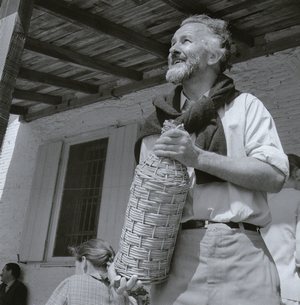
Philip Owen Arnould Sherrard was a British author and translator. His work includes translations of Modern Greek poets, and books on Modern Greek literature and culture, metaphysics, theology, art and aesthetics. In England he was influential in making major Greek poets of the nineteenth and twentieth centuries known. Sherrard was a practising Eastern Orthodox Christian and was responsible, along with Kallistos Ware and G. E. H. Palmer, for the first full translation of the Philokalia into English. He also wrote prolifically on theological and philosophical themes, describing what he believed to be a social and spiritual crisis occurring in the developed world, specifically modern attitudes towards the biophysical environment from a Christian and perennialist perspective.
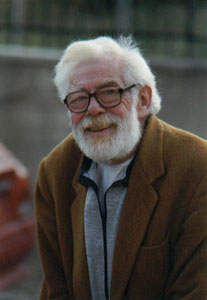
Irwin Peter Russell was a British poet, translator and critic. He spent the first half of his life—apart from war service—based in Kent and London, being the proprietor of a series of bookshops, editing the influential literary magazine Nine and being part of the literary scene. Bankruptcy and divorce led to several years of travel which took him to Berlin, Venice, British Columbia and Iran, amongst other places. After the Iranian Revolution he settled permanently in Italy, where he spent the rest of his life. He lived in considerable financial hardship and throughout all he lived a life dedicated to poetry. His work never became mainstream, but it is highly regarded in some circles.
Eratosphere is a free-to-join workshop for formal poetry. Additionally, it is a forum for free verse, for poetry and prose translation, fiction, art, literary criticism, and critical discussions on writing. It was founded in 1999 by Alexander Pepple as a workshop complement to Able Muse. Eratosphere moderators have included some of the best known formal poets, with the Poet Laureate of Wisconsin Marilyn Taylor, A. M. Juster, A. E. Stallings, and R. S. Gwynn among them.
Sherod Santos is an American poet, essayist, translator and playwright. He is the author of eight collections of poetry, most recentlyThe Burning World in 2024, and Square Inch Hours in 2017. Individual poems have appeared in The New Yorker, The Paris Review, The Nation, Poetry, Proscenium Theatre Journal, American Poetry Review, and The New York Times Book Review. His plays have been produced at The Algonquin Theatre in New York City, The Royal Court Theatre in London, The Side Project in Chicago, the Brooklyn International Theatre Festival, and the Flint Michigan Play Festival. Santos also wrote the settings for the Sappho poems in the CD Magus Insipiens, composed by Paul Sanchez and sung by soprano Kayleen Sanchez.
Hermeticism in poetry, or hermetic poetry, is a form of obscure and difficult poetry, as of the Symbolist school, wherein the language and imagery are subjective, and where the suggestive power of the sound of words is as important as their meaning. The name alludes to the mythical Hermes Trismegistus.
Stephen Owen is an American sinologist specializing in Chinese literature, particularly Tang dynasty poetry and comparative poetics. He taught Chinese literature and comparative literature at Harvard University and is James Bryant Conant University Professor, Emeritus; becoming emeritus before he was one of only 25 Harvard University Professors. He is a member of the American Academy of Arts and Sciences and the American Philosophical Society.














